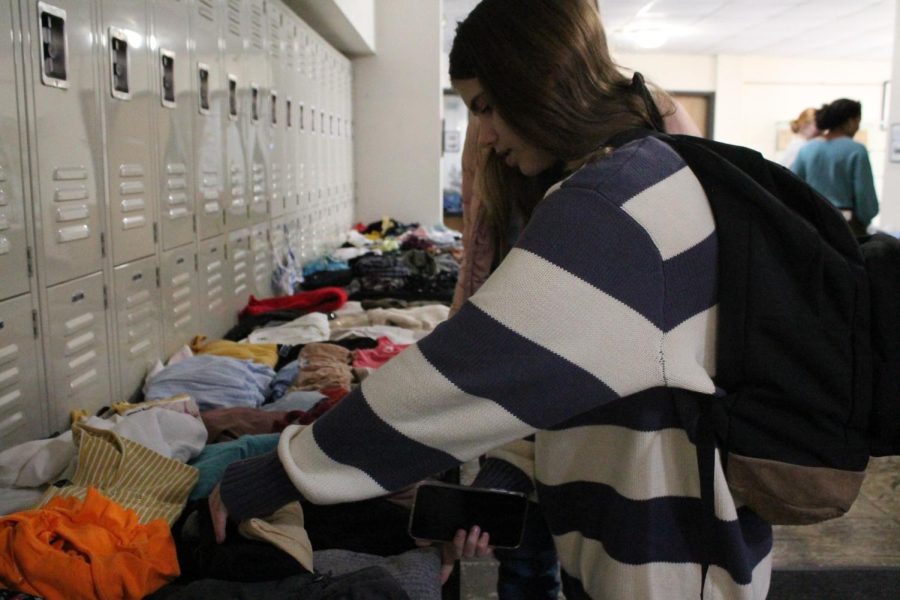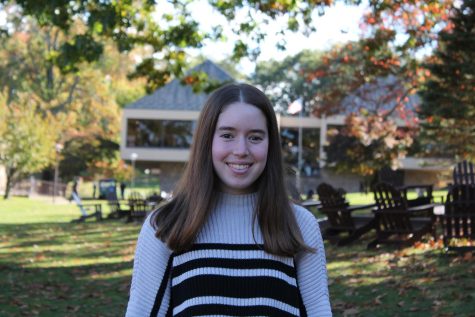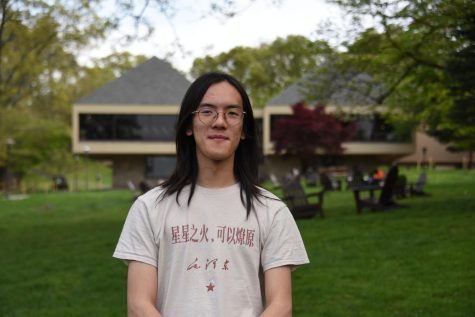Fall Festival promotes sustainability action on campus
Students shop at the thrift swap on the lower level of the dining hall. The swap served as an opportunity for community members to shop sustainability.
December 16, 2022
Masters sustainability initiative EFFECT hosted Fall Festival from Nov. 14-18. The goal was to promote environmental action and encourage sustainable practices through a variety of community-wide events after school, including: a thrift swap, hike and trash sweep with cider, honey tasting and wearing green sustainable clothing.
EFFECT Co-Chair Bobby Callagy said that the club spent the past two months preparing for Fall Festival, ensuring that all EFFECT members had an impact on the week’s schedule.
“This year, we tried to take into account other student voices, especially the new freshmen that are coming in that could give us a fresh perspective,” Callagy said.
EFFECT Senior Organizer and Middle School Liaison Clara Nalle added that they took into consideration the type of events that would receive the most excitement within the Masters community.
“I love being able to apply action at a smaller campus like Masters where you can actually see the change,” Nalle said.
Fellow Co-Chair Sophia Semczuk said that this year EFFECT took a slightly different approach to the thrift shop by encouraging “swaps” in addition to shopping.
Callagy said, “There is a point system. If you bring in one item, you get one point and then you can use that point towards getting another item of clothing. Or, we have prices for the items which are incredibly low.”
Callagy noted that the leftover clothes from the shop will be donated to clothing centers, such as GoodWill, and the $100 raised will go back into the EFFECT budget, which will allow the initiative to plan more sustainability events in the future.
Senior EFFECT member Morgan Young has been involved in sustainability since a young age as her mother’s company Srina grows organic tea in Sri Lanka using eco-friendly practices. She said that education and action are necessary in order to effectively combat climate-related problems.
“Most of the clothes I wear are thrifted. The best way that you can be sustainable is to not constantly buy fast fashion and to reuse your clothes or buy used clothes,” Young said.
“We are trying to bring home the point to refuse those big corporations and more so focus on either smaller or local companies, which are oftentimes more sustainable,” Callagy said.
But this year’s Fall Festival didn’t come without challenges. Semczuk and Callagy both expressed difficulty in reserving morning meeting time to promote the week’s activities. The club canceled an event where it had planned to write letters to lawmakers because it could not announce it to the school beforehand.
Nalle said, “It was definitely harder this year to organize Fall Festival because we meet on Wednesdays and a lot of our Wednesdays were cut short [due to special school day schedules],” Nalle said.
Additionally, Callagy said that they needed to pay close attention to the thrift shop because there were issues with people stealing clothing during last year’s thrift shop.
EFFECT plans to continue community-wide events such as Green Week and the farmers market in the spring. In addition, the initiative is currently working with Westchester Green County to work towards reducing the school’s carbon footprint and has set a goal to one day reach net carbon zero at Masters.
“[Fall Festival] is a stand in solidarity for sustainability practices. With the current world around us, I think that showing your support for sustainability and working towards a greener future is really important, especially at a school like Masters,” Callagy said.





